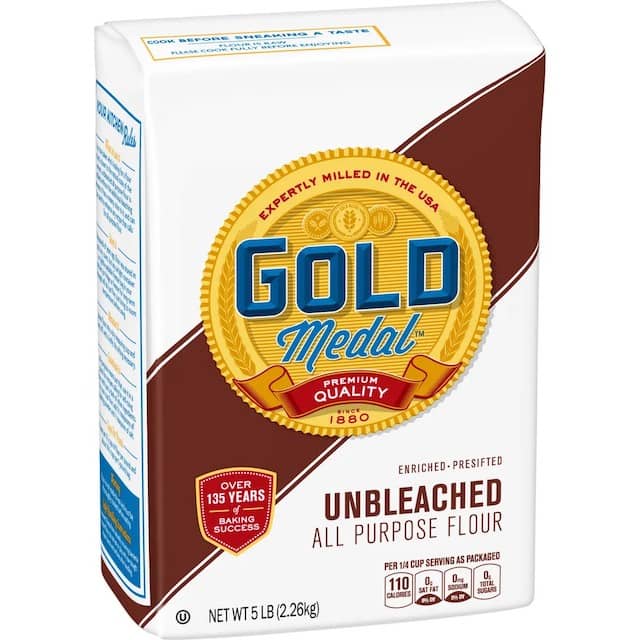Flour makes the base for a wide variety of recipes and dishes. You can find several types of flour sold commercially on the shelves of a supermarket. Some of them are bleached while others are unbleached.
So, is unbleached flour plant based? Yes, unbleached flour is plant based. Because it comes mainly from plants and is often free of any animal products, unbleached flour is perfect for a plant based diet.

In this post, we try to learn more about what unbleached flour contains so that you can understand whether you should make it a part of your plant-based diet.
Why Unbleached Flour is Plant Based?
Unbleached flour is generally made by grinding whole grains like wheat, corn, barley or a combination of these. It does not contain any other ingredient coming from animal sources, making it clearly a plant-based food.
Unbleached flour is sometimes enriched with vitamins and minerals to boost its nutritional profile. It is important that you check the ingredients list to make sure there is no animal-derived product added to the flour.
What are the Main Ingredients in Unbleached Flour?
Unbleached flour is generally made from whole grains like wheat, barley or others. These grains are ground to make a powder and don’t contain any animal-derived components. However, some varieties of unbleached flour may contain vitamins and minerals added to it.
It is important to make sure you check the ingredients of commercially available unbleached flour to avoid any chemicals or animal-based products.
Unbleached Flour Nutrition
Unbleached flour contains the same nutritional components as bleached flour, depending on the grains used. However, unbleached flour, specifically whole wheat variety, contains more antioxidants, fiber, manganese, vitamin E and copper as compared to bleached varieties. It is often enriched with B vitamins like niacin, folate, thiamine and B6.
One cup serving of unbleached white flour contains:
Calories – 440
Carbohydrates – 92g
Protein – 12g
Fiber – 4g
Sugar – 4g
Whole foods like wheat contain healthy carbs, protein and fats essential in lowering the risks of some diseases. Consuming these high-fiber foods helps boost the metabolic rate, contributing to weight management. Unbleached flour is also known to protect the body against heart diseases, diabetes and cholesterol.
When unbleached flour contains high-fiber cereals, they deliver laxative effects important for alleviating the symptoms of constipation, nausea and indigestion, improving digestive function. It is also an anti-cancerous agent and reduces the risk of certain types of cancer.
Conclusion
So, is unbleached flour a good addition to your plant-based diet? Absolutely! This type of flour is rich in essential nutrients and provides the body some vital vitamins and minerals it needs for good health. You should focus on whole-grain flour as a part of your everyday diet to get your daily intake of carbohydrates and energy. It is, however, important to check the ingredients on commercial products, to make sure they don’t contain components that could interfere with your diet.
Most Popular Questions: